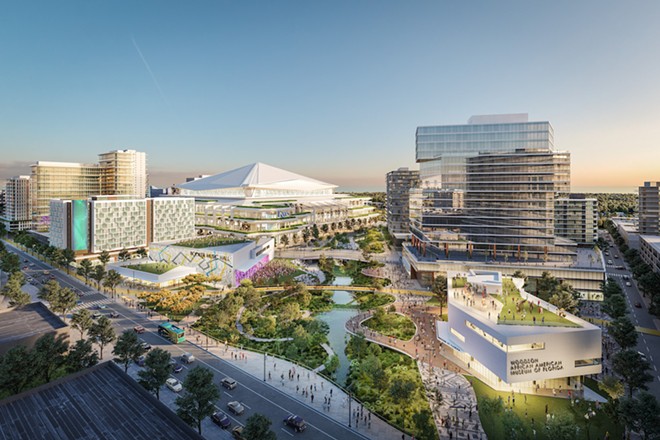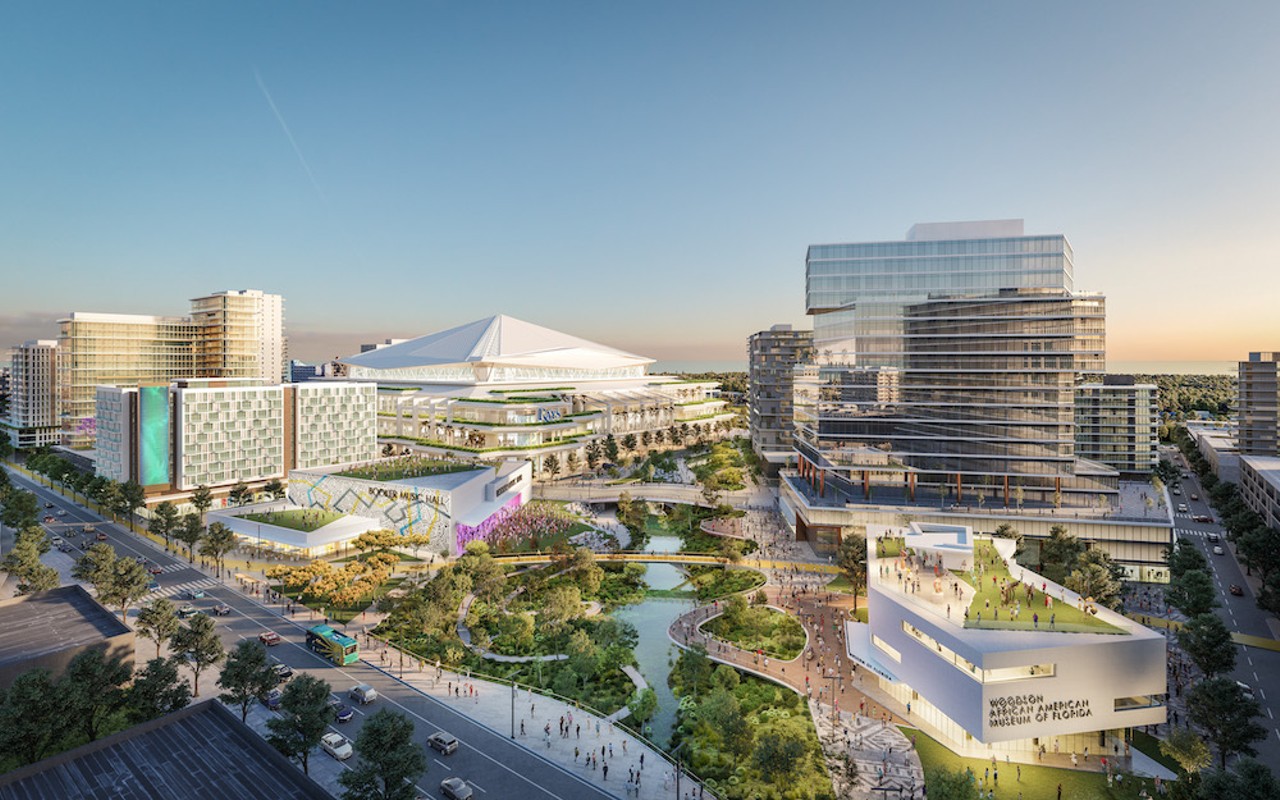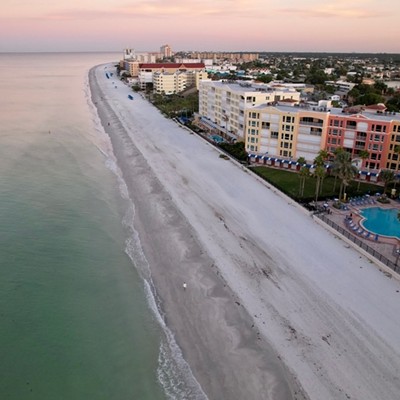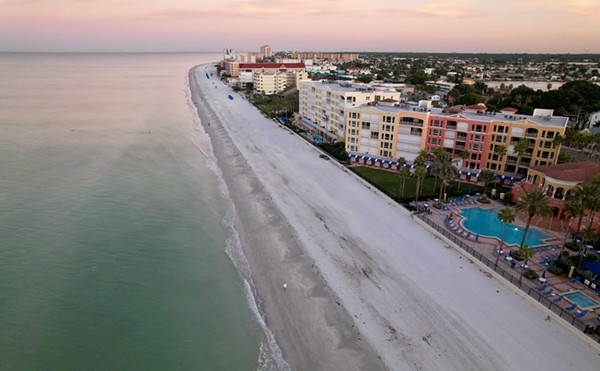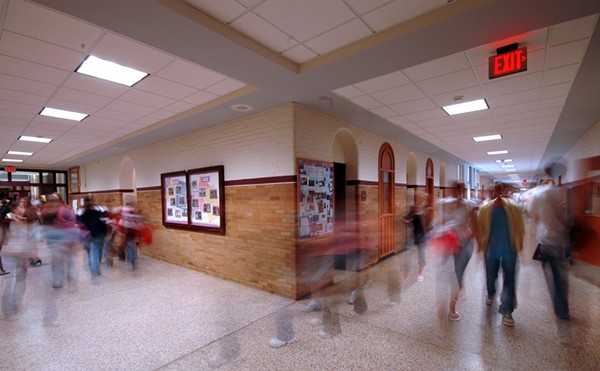But the history of the Gas Plant District is a long and fraught with injustice. And the deal, which opponents say is a giveaway to the developers, still has questions unanswered only hours before the big vote. What is clear? The cost of the stadium is an estimated $6,000 for every man, woman, and child in the city.
In Tuesday’s Committee of the Whole (COW) workshop, St. Petersburg Council Member Lisset Hanewicz, an attorney, expressed concerns about the $50 million discount on land acquisition based on a promised $50 million in community benefits.
“It’s $50 million of community benefits but not in today’s dollars, it’s throughout a 30-year period,” Hanewicz said. “That money should be up front. And frankly, if you’re going to say you’re giving us $50 million community benefits, it shouldn’t be discounted from the price of the land.”
“We are disappointed by today’s COW workshop and Council's lack of aggressiveness in pushing to further improve the agreements that they will vote on,” Dave Harbeitner, Suncoast Sierra Club political committee member, told CL in an email.
The agreement requires ongoing subsidies from federal, state, and local sources in order for Rays-Hines to comply with the affordable housing component of the deal—and council member Richie Floyd voiced concerns about the lack of enforcement for affordable housing.
“I don’t think we should be giving them any subsidy, after all the money we’re about to pour into this,” Floyd said. “My concern is we might be putting forward significant subsidies that we can’t afford, and then they [Rays-Hines] can get out of it.”
Welch, who’s pushed hard for the project, told Floyd that he’s got more housing in the works.
“In terms of housing, this is not the only thing that we’re doing,” Welch said at the meeting. “It’s my intention that we enhance our Housing Opportunities for All program…We plan to do much more in housing.”
But Rays-Hines isn’t required to hold up its end of affordable housing, if for some reason the city stops giving the partnership its subsidies.
“We’re not going to get any affordable housing from this,” Lynn Waddell, with the League of Women Voters, told CL.“We’re not going to get any affordable housing from this."
tweet this
Back in February, the League of Women Voters conducted a survey of roughly 800 residents and found that 69% of respondents strongly agreed, with an additional 11% agreeing, that the city should negotiate a better deal.
The agreement was tentatively approved by council 5-3 in June, with council members Richie Floyd, John Muhammad and Lisset Hanewicz being the only no votes. Thursday’s vote can only pass 5-3; a 4-4 vote would effectively send everyone back to the drawing board, so it’s still possible that council could push the vote again.
What’s more is that last week, the City Council voted 7-1 to delay repealing its apprenticeship ordinance, with Ed Montanari opposing. The repeal was recommended by assistant city attorney Jeannine Williams, due to new preemption legislation HB 705 that took effect July 1. The new state law prevents local ordinances from placing apprenticeship or wage requirements on contractor bids for public works projects that use local and state funds.
Council will discuss repealing the ordinance again at the Public Service and Infrastructure Committee on Aug. 8.
The apprenticeship component was one of the few remaining and substantive community benefits in the Rays-Hines deal. Brian Nathan, Field Organizer and Political Coordinator for IBEW 915, told CL that the ordinance, passed in 2019, was originally designed to fill the skilled labor gap in the city.
“There haven’t been that many projects of sufficient size to actually trigger the ordinance,” Nathan said.
One of the projects that would have triggered the ordinance? The stadium project.
“They pulled out any reference to the ordinance and added some language that the Rays-Hines are committing to this,” Nathan said. “But the City Council can’t really enforce it, so there’s no way we can hold them to it.”
There are other unknowns, like what’s going to happen to the bodily remains of Black residents in nearby Oaklawn cemetery that were left behind, paved over, forgotten. USF Anthropologist Dr. Antoinette Jackson, with the Black Cemeteries Network, believes there are likely bodies still buried at the site of Tropicana Field.
Brian Caper, with the city’s economic and workforce development, said the city’s already done penetrating ground radar and located four areas that require further inspection. Caper said expanded ground radar was recommended and a complete report is expected this fall.
“The next step is to do ground truthing, which is to dig on the site to determine what is actually there,” Caper said at Tuesday’s COW meeting.
Then there’s Brooker Creek, which is contaminated with polluted runoff, resulting in its longtime “imperiled waterway” status. If the waterway is going to be part of the stadium or redevelopment, the creek could pose a major expense and it's still unclear who would be responsible for that cost.
Meanwhile, the Southern Poverty Law Center is investigating the city’s initial acquisition of the land, and how federal, state, and local entities abused eminent domain for economic development that ultimately provided no long term employment or housing. A June letter from the SPLC says that the City of St. Petersburg may be violating its civil rights obligations.
Mayor Welch’s father, David, was one of the first Black city council members in the city, and shepherded the last stadium development deal in the Gas Plant back in 1982. He also lived to see the project’s unmet promises.
“That was a slum area,” David Welch said about stadium redevelopment in 2007. “In all it was a plus, but the projection of new businesses was a failure.”
During his closing remarks on Tuesday, Welch held up a placard of the original “multipurpose stadium,” dated July 1986, from his father’s time. The rendering was a vision for the dome and its future in downtown St. Petersburg.
“It has a question, what’s the most exciting thing about this picture? The answer is that it really could happen, and in downtown St. Petersburg,” Welch said. “They crossed through could, and put will…How far our vision has come in 38 years.”
The St. Pete Tenants Union protested the stadium deal outside City Hall on Tuesday night. The final vote is scheduled for Thursday, July 18.
Subscribe to Creative Loafing newsletters.
Follow us: Google News | NewsBreak | Reddit | Instagram | Facebook | Twitter

